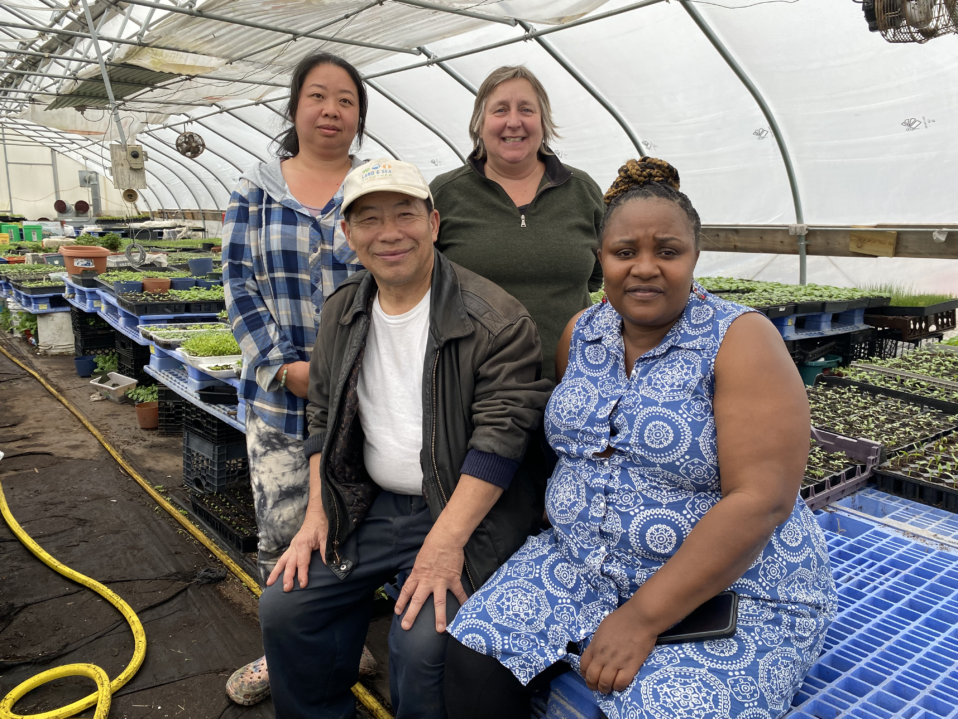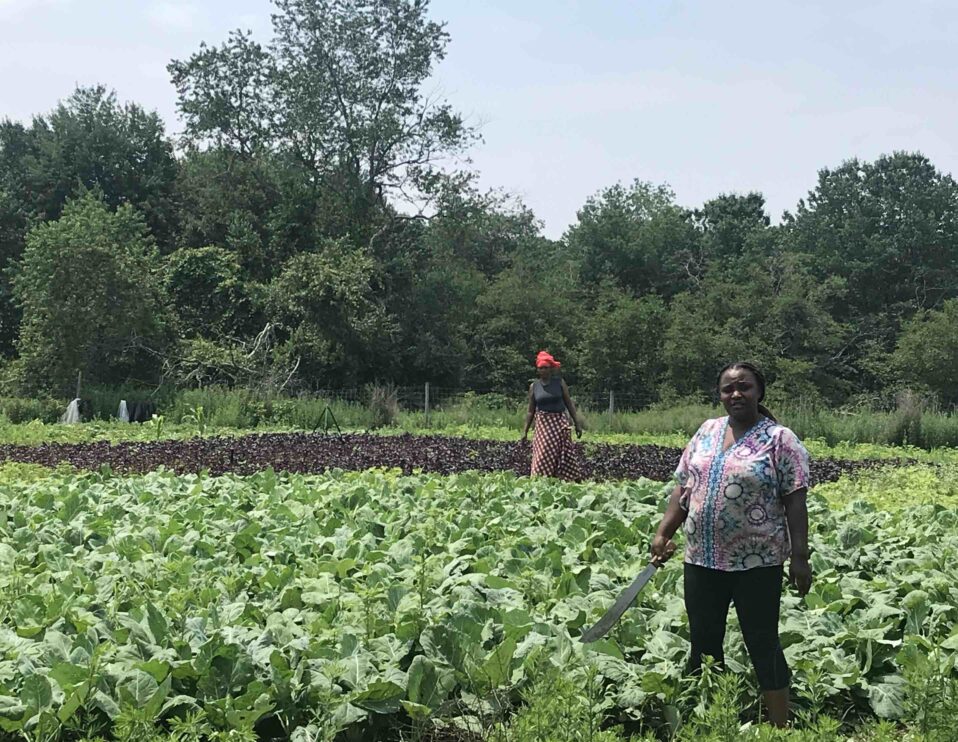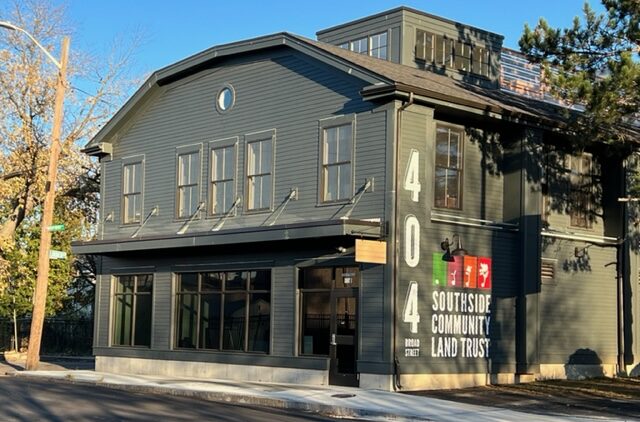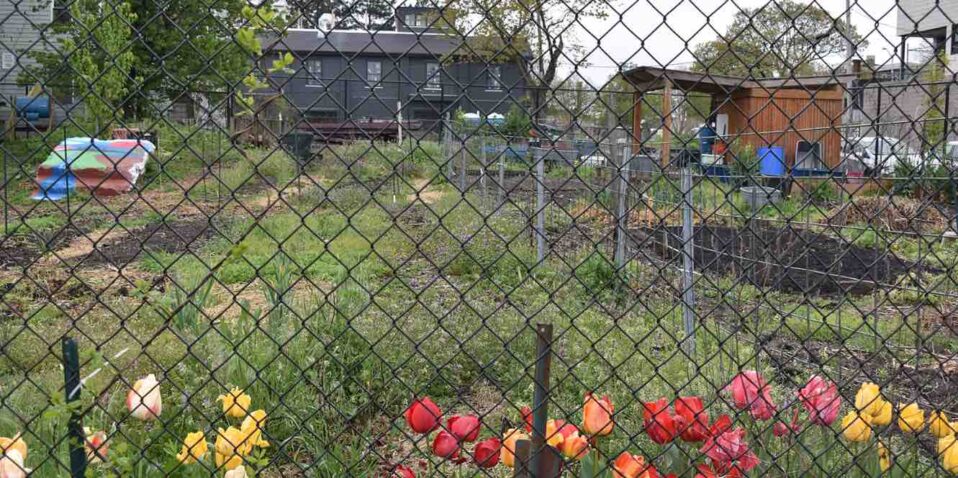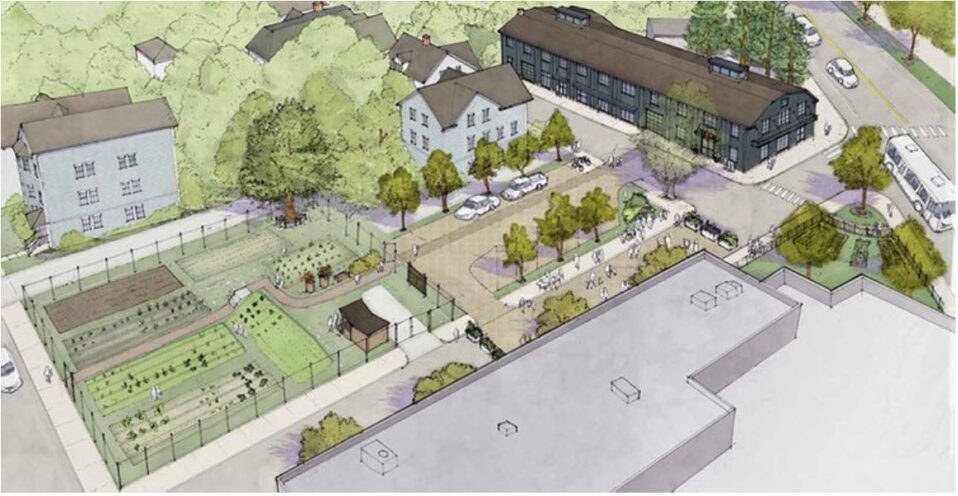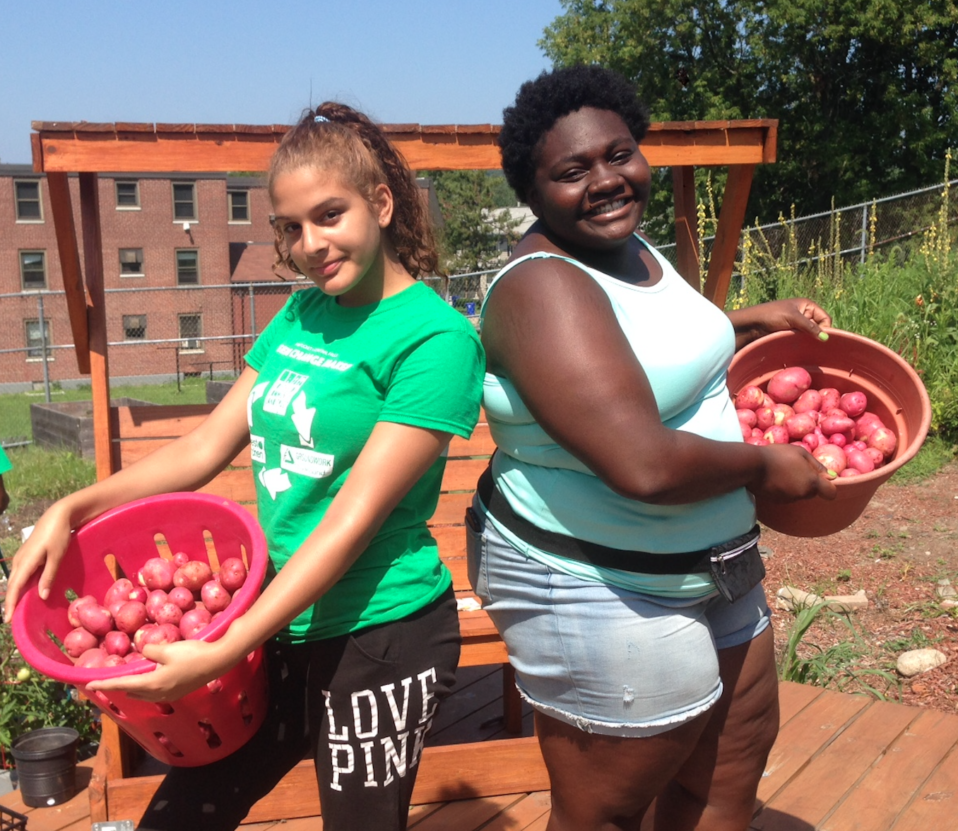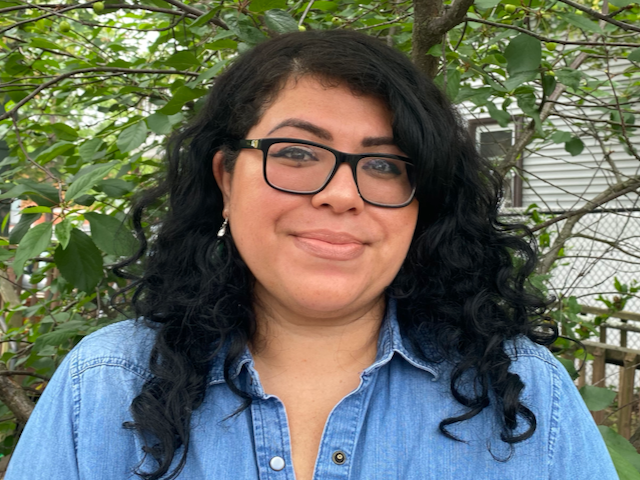Starting this month, local farmers resumed their weekly drop-offs of fresh produce at 404 Broad Street’s Farm-to-Market Center, where SCLT aggregation staff sort and store it briefly before it is delivered to clients throughout Greater Providence. Last year 23 farmers sold their produce through this program to six hunger relief agencies, as well as to our own VeggieRx produce prescription program. This much-needed nutritious food reached 1200 people and netted farmers close to $100,000.
Farmers add new flavors to beloved farmers market
With the outdoor farmers market season already underway, we wanted to share that one of the most successful markets in the state, the Hope Street Farmers Market (HSFM) in Providence, is bringing on six new farms for its 2023 season.Four are run by SCLT-network farmers growing at Urban Edge Farm in Cranston.
The new additions are Charlotte Uwimpuhwe (Charlotte’s Farm), Blia Moua and his wife Mai Lee (Wilson Community Farm), Chai Thao and her husband Leng Yang (Daily Farm), and Christina Dedora (Sanctuary Herbs). Each is eager to connect with new customers at this well-run, well-attended market and sell their produce, including amaranth, Thai peppers, butter ball and bitter melon, as well as more familiar vegetables, herbs and teas.
The HSFM was named one of the 10 best farmers markets in the country by USA Today in 2019, and regularly wins in the “Best of” category in RI Monthly’s annual competition. It draws large crowds (and dozens of friendly dogs) on Saturday mornings, and features live music, food trucks, and the Providence Artisans Market along Blackstone Boulevard. Its festival vibe can obscure that, for farmers, selling here can significantly affect their earnings.
Many people don’t realize that the 32-year-old HSFM was founded by an SCLT Board Member, Sandy Parsons. It began as the DownCity Farmers Market Cooperative with a handful of farmers in Kennedy Plaza before relocating to the grounds at Hope High School. It moved again, a couple of miles up the street to
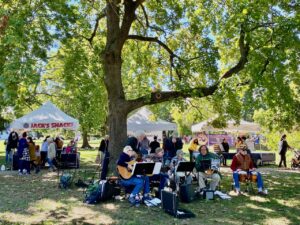
Lippitt Park, in 2008. Despite the moves and the increase in participating farmers over the years, some changes were gradual.
Getting a spot at the HSFM hasn’t been easy because farmers tend to stay for years. But, attrition caused by the pandemic created several openings. SCLT staff urged farmers we work with to pursue this opportunity for them to grow their businesses and for the HSFM to better represent the BIPOC farmers in the state.
“In the early days, all the farmers at local markets were white,” said longtime SCLT volunteer and market-goer Elaine Cali. “The farmers from Asia, Africa, and the Caribbean have brought a richness by introducing customers to produce from their home countries. And, they love to talk to customers about how to prepare and enjoy them.”
While the juried market will have more farmers and vendors this season than ever (48), Market Manager Rui David describes the growth as “thoughtful, manageable, and sustainable.” The HSFM accepts only “farmers and food artisans” from Rhode Island, Connecticut, and Massachusetts. One of the criteria is that a participant’s “product will add to the overall diversity of the market without negatively impacting the financial success of current full-time vendors.” After applications are reviewed by a committee of current farmers and vendors they are voted on by all market association members in the spring.
The new farmers from Urban Edge Farm will join several others over the years with connections to SCLT. Besides City Farm, these include Pat’s Pastured, Zephyr Farm, and Greenleaf Farm. Stop by and ask any of them about their products. You may very well bring home something that adds fantastic new flavors to your next meal.
Learn more about the HSFM and check out their 2023 schedule at hopestreetmarket.com.
– Jenny Boone, Grants & Communications Manager
Caption above: Chai and Christina (standing), Blia and Charlotte, inside one of the greenhouses at Urban Edge Farm.
Record number of farmers win state-funded LASA grants
On Tues., Feb. 21, the RI Department of Environmental Management announced the winners of the Local Agriculture and Seafood Act grant program’s (LASA) 2022 funding cycle.
New headquarters wins historic preservation award
Unless you’ve lived in Providence for a long, long time, you probably wouldn’t know that our newly renovated building at 404 Broad Street started out as a livery, where neighbors stored their horses and carriages.
Local food builds health, community and sustainability
A robust Rhode Island food system would support environmental justice and help mitigate climate change. The current corporate-ruled system is collapsing under the weight of a changing climate, even as the barriers to food equality grow.
By Frank Carini, ecoRINews
SCLT’s New Headquarters to Invest in Healthy Food
By Caitlin Faulds, ecoRInews
PROVIDENCE — A multimillion-dollar loan recently granted to Southside Community Land Trust (SCLT) is set to improve the availability of healthy and affordable food in CentralFalls, Pawtucket, and South Providence for years to come, according to an SLCT spokesperson.
Saturday youth jobs now offered in Providence & Pawtucket
We’re adding on to our fall Youth Program this year! Young people between 14-24 are invited to apply for Saturday jobs located at SCLT urban farms in Providence and Pawtucket.
Meet Josselyn, SCLT’s newest Advancement Team member
Josselyn Velásquez-Florián joined SCLT in April 2021 as our new development coordinator, working on donor relations, events, database management, grants and communications.
Seeking high school youth for summer jobs
Southside Community Land Trust is offering 6-week summer jobs in both Providence and Pawtucket from early July to mid-August.


